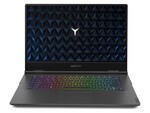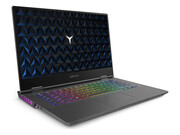Lenovo Legion Y740-15CHg-81HE0041GE
Especificaciones de Portátil(es)

Price comparison
Promedio de 1 puntuaciones (de 2 análisis)
Análisis para el Lenovo Legion Y740-15CHg-81HE0041GE
Origen: Techaeris
 EN→ES Archive.org version
EN→ES Archive.org versionWhile most powerhouse gaming laptops look the part, it’s nice that the Lenovo Legion Y740 doesn’t and not only for design, but also performance, this is currently one of my favourite gaming laptops. It’s not perfect, but it is where it counts so if you don’t care about battery life or plan on using the camera for streaming, this laptop is an absolute beast while remaining on the sleeker side in the looks department. Take those out and you’re looking at a 9.5/10 instead of the overall 8.8 it received taking those into account.
Único Análisis, disponible online, Mediano, Fecha: 07/10/2019
Puntuación: Puntuación total: 88% precio: 95% rendimiento: 100% pantalla: 100% movilidad: 50% procesamiento: 95%
Origen: Good Gear Guide
 EN→ES Archive.org version
EN→ES Archive.org versionThe Lenovo Legion Y740 feels emblematic of this GPU generation changeover. Nvidia’s pushing ray tracing, but the content’s not really there to make good on it yet, and it leaves cards like the RTX 2070 Max-Q in a strange spot. Sure, the RTX generation is theoretically better, but only in specific instances. Ray tracing is years away from mattering much to the average user. In traditional benchmarks, the RTX 2070 Max-Q is about on a par with its predecessor—or worse, if you compare the RTX 2070’s Max-Q version to a full-size GTX 1070.
Único Análisis, disponible online, Muy largo, Fecha: 05/03/2019
Comentario
NVIDIA GeForce RTX 2070 Max-Q:
Tarjeta gráfica para portátil de gama alta basada en el chip TU106 con 2.304 shaders y 8 GB de VRAM GDDR6. Ofrece velocidades reducidas para alcanzar un consumo de energía mucho más bajo.
Estas tarjetas de video de clase media pueden mostrar todos los juegos actuales fluentemente. Juegos exigentes sólo pueden ser jugados con configuraciones de detalles medios.
>> Más información puede ser encontrada en nuestra comparación de tarjetas gráficas moviles y la lista de benchmarks.
i7-8750H:
Procesador basado en arquitectura Coffee Lake para portátiles grandes y pesados. Integra seis núcleos de procesador con velocidad de 2,2 - 4,1 GHz (4 GHz con 4 núcleos, 3,9 GHz con 6 núcleos) que admiten HyperThreading. Producido en un proceso de 14nm FinFET mejorado (14nm++).
>> Más información puede ser encontrada en nuestra comparación de procesadores móviles.


